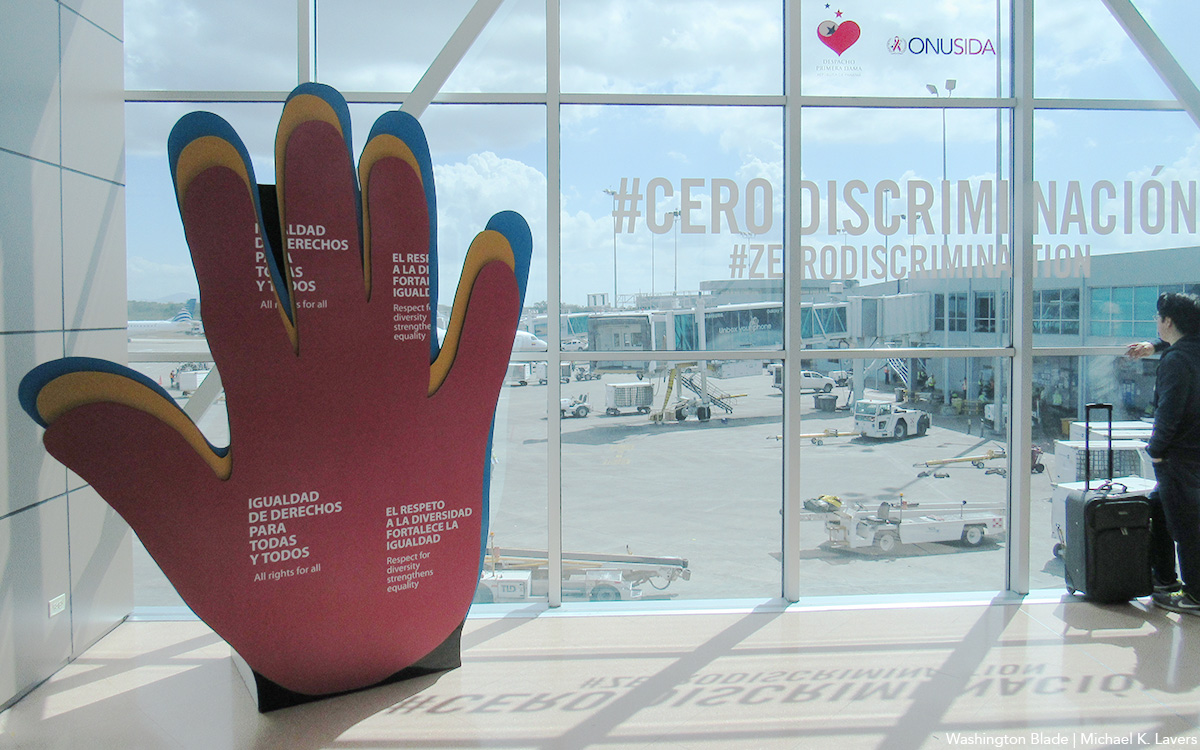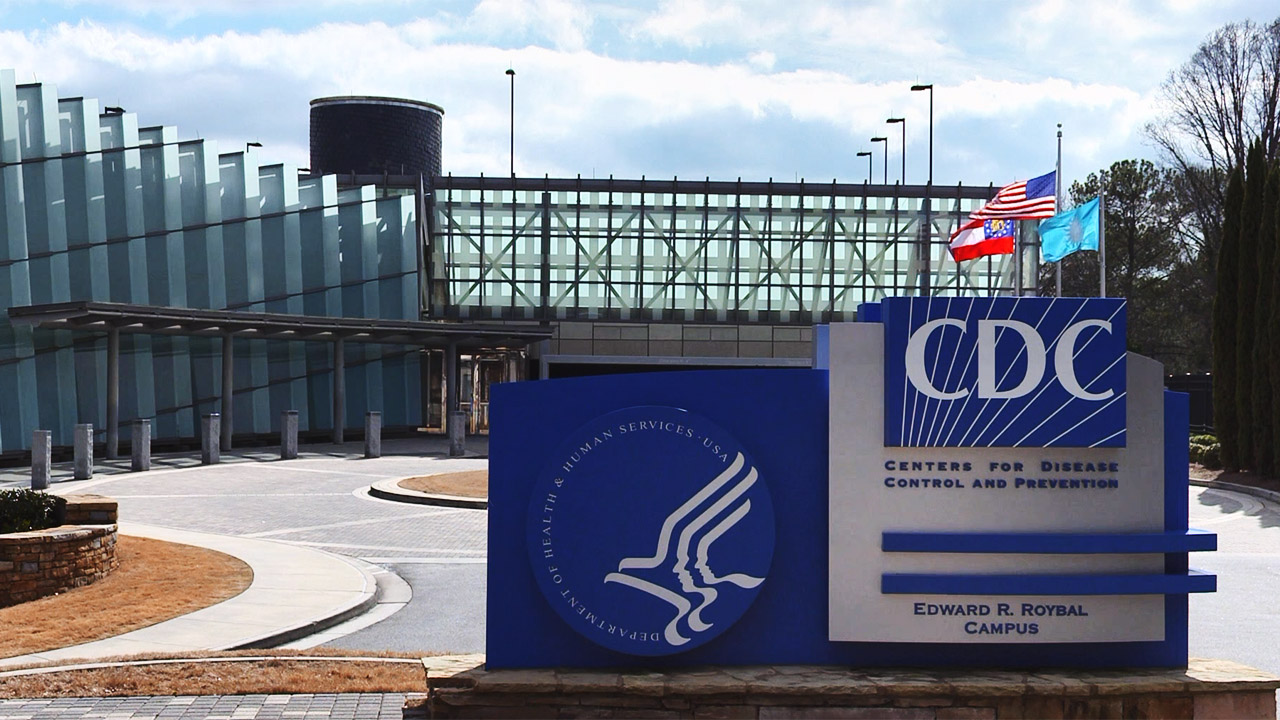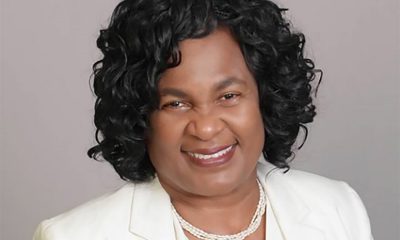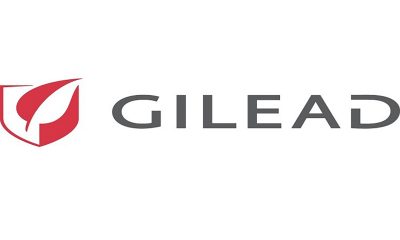Health
New HIV/AIDS clinic planned for D.C.
Alpha Drugs poised to sponsor venture

A primary care medical clinic specializing in serving HIV/AIDS patients will soon open its doors, according to its medical director.
Dr. Milton Mills, an HIV/AIDS doctor currently practicing outpatient clinic-based medicine in Northern Virginia, said the new clinic might be based in the relocated D.C. Center for the LGBT Community.
The Center, which is seeking a new home before its displacement next month from 1840 14th St., N.W., due to a redevelopment project, has appealed for city assistance. It’s unclear where the Center will relocate.
Mills said the new clinic, sponsored by Alpha Drugs & Medical Supplies, is looking for space now so it can open to the public as soon as possible.
Plans for the new clinic were revealed last week during an Alpha Drugs HIV/AIDS patient “survival forum” at the Hotel Palomar in D.C. No additional information regarding the clinic, such as its staff size or whether it was intended to compete with the specialty HIV/AIDS care that Whitman-Walker Clinic offers, was offered during the event.
Mills, a Stanford University School of Medicine graduate who works as a critical care physician at Fairfax Hospital, made an offhand reference to the new clinic while speaking on the role of nutrition in the treatment of HIV.
During his presentation, Mills emphasized the link between nutrition and health. He also stressed the importance of “dietary intervention” to treat and cure seriously ill patients.
“Medical research shows conclusively that a plant-based diet reduces chronic disease risk,” Mills said. “I find that when people are ill, they are very open to adopting such practices as a vegetarian diet when that will improve their health.”
Mills told a group of about 40 people that he’s “very in your face about what’s good for you,” but his “goal is not to make you all vegetarians.”
“In fact,” he said, “I used to be the biggest meat-eater in my family, and I thought I couldn’t live without it.”
Mills said he changed his eating habits more than 20 years ago, moving from a vegetarian diet to being “95 percent vegan, only occasionally eating something with egg whites in it.” He noted that his dietary changes, despite some initial difficulties, yielded better health.
“Like alcohol or cocaine, meat eating is an addiction,” he said. “And if you don’t believe me, just try taking a piece of chicken out of someone’s hand. They will hurt you worse than a crack addict.”
To successfully adopt a vegetarian diet, Mills said it’s important to “divest food of its emotional meanings.”
“We often think of food in emotional terms,” he said. “For example, food reminds us of Thanksgiving at grandmother’s house. But we need to divest food of these feelings, and not see food in its romantic terms, because food is just chemicals in our body.”
Mills shared reams of data during his presentation, which noted the costs associated with HIV patients who choose to continue eating meat.
“Many antiretroviral drugs used to treat HIV stress the body,” he said. “For example, [there is] liver stress and some raise your cholesterol levels and contribute to heart disease.”
He said to offset that stress — “and so that these medications don’t have a negative as well as positive effect” — dietary changes are helpful.
“AIDS has gone from being inexorably fatal so that now HIV on therapy taken as prescribed has become basically a chronic disease with a normal lifespan,” Mills said.
He noted this means that an HIV/AIDS patient’s major health risks now often come from other causes, such as Hepatitis B and C, diabetes, heart and kidney diseases, and diet is key to fighting these potential problems.
Health
UNAIDS to commemorate Zero Discrimination Day’s 10th anniversary
UN agency urges global action to protect human rights

As the world marks the 10th anniversary of Zero Discrimination Day; UNAIDS is sounding the alarm on the increasing threats to human rights, calling for renewed efforts to protect the rights of all individuals as a fundamental step towards ensuring health for everyone.
Established by UNAIDS a decade ago, Zero Discrimination Day aims to promote equality and fairness regardless of gender, age, sexuality, ethnicity or HIV status. The progress achieved over the past years is now in jeopardy, however, due to rising attacks on the rights of women, LGBTQ people and other marginalized communities.
UNAIDS Executive Director Winnie Byanyima emphasized the critical link between protecting human rights and safeguarding public health.
“The attacks on rights are a threat to freedom and democracy and are harmful to health,” she said in a press release. “Stigma and discrimination obstruct HIV prevention, testing, treatment and care and hold back progress towards ending AIDS by 2030. It is only by protecting everyone’s rights that we can protect everyone’s health.”
Despite challenges, there has been notable progress.
At the onset of the AIDS pandemic more than 40 years ago, two-thirds of countries criminalized consensual same-sex sexual relations. They are now decriminalized in two-thirds of countries. An additional 38 countries around the world have pledged to end HIV-related stigma and discrimination, contributing to positive changes that include 50 million more girls attending school compared to 2015.
To sustain and enhance these advancements; UNAIDS urges global support for women’s rights movements, LGBTQ rights, racial justice, economic justice, climate justice and peace initiatives. By standing with communities advocating for their rights, the U.N. aims to reinforce the collective effort towards a more inclusive and equitable world.
Zero Discrimination Day is observed on March 1.
Events and activities that will take place around the world throughout the month will serve as reminders of the essential lesson and call to action: Protecting everyone’s health is synonymous with protecting everyone’s rights.
“Through upholding rights for all, we will be able to achieve the Sustainable Development Goals and secure a safer, fairer, kinder and happier world — for everyone,” said Byanyima.
Health
New CDC report finds transgender women at higher risk for HIV
More than 1,600 people in seven cities surveyed

The Centers for Disease Control and Prevention issued a new study report this week that revealed that restricted by employment and housing discrimination and lack of access to needed gender-affirming healthcare for transgender women increasing the risk of contracting HIV.
Researchers reviewed data from a 2019-2020 survey, the National HIV Behavioral Surveillance Among Transgender Women, which found that the demographics of HIV/AIDS have been disproportionally high, especially among Black and Latina trans women, who had experienced employment and housing discrimination coupled with lack of access to gender-affirming healthcare.
The Jan. 25 Morbidity and Mortality Weekly Report was based on data studies of more than 1,600 trans women in seven major urban locales. Participants from Atlanta, Los Angeles, New Orleans, New York, Philadelphia, San Francisco and Seattle were chosen by referrals from people and community-based organizations who knew or were part of the local population of trans women.
The study’s researchers noted: “Employment discrimination occurs at the overlapping nexus of poverty, homelessness, incarceration, health insurance, disability, food insecurity and survival sex work. These issues are interconnected.”
The study stated that trans women’s inability to access quality healthcare, including gender-affirming treatment or access to PrEP, and can expose them to potential incarceration as many turn to “survival sex work” and violence, which increases the risk of contracting HIV.
The study’s author’s pointed out: “When economically marginalized transgender women are refused employment, this refusal cyclically contributes to economic hardships. This analysis …demonstrates the importance of transgender women working and living with dignity and without fear of unfair treatment.”
Health
A Whole New Perspective on Well-Being
The Mather’s team recognizes that everyone’s wellness journey is completely unique to their life experiences and influences.

It’s easy to spot the distinctive, elegant silhouette of The Mather, a Life Plan Community for those 62+ opening this spring in Tysons, Virginia. What is not apparent to the naked eye is The Mather’s unique wellness philosophy, which is literally built into the community.
The Mather’s team recognizes that everyone’s wellness journey is completely unique to their life experiences and influences.
Nature is one of the important factors that contribute to well-being. So The Mather is incorporating biophilic design—a design approach to facilitate access to nature or things that replicate natural patterns. This can include interior spaces with sightlines to a garden, choosing natural wood and stone as interior materials, or incorporating fragrant flowers and plants indoors to spark memories and provide tactile opportunities such as gardening.

“Providing biophilic design within interior settings connects residents to the natural world,” says Mary Leary, CEO and President of Mather, the organization behind The Mather. “Research shows that a connection to nature provides positive benefits to mental states and overall well-being. At The Mather, biophilic design is the intersection of buildings and programs with nature in an urban setting.”
“The Mather is attracting a diverse group of older adults,” says Mary. “As a result, we aim to incorporate wellness practices from around the world, including Wyda movement theory of the Celtic Druids, which helps people achieve harmony with nature and contentment through mindfulness.” This holistic regenerative approach is similar to Qi Gong and yoga, while born in a different part of the world. Mather Institute has a special focus on mindfulness to support older adults’ practice of present moment awareness, which can lead to increased overall well-being, compassion, and joy.
A very different example of a wellness offering at The Mather is the Gharieni Welnamis spa wave bed, which uses computer-controlled vibrational therapy and audio frequencies to train the brain to relax. “The bed increases mindfulness, concentration, and creativity—all of which support our mission of creating Ways to Age Well,SM” says Mary.
These and other personalized ways to wellness will ensure that residents of The Mather can choose from seemingly countless ways to focus on their well-being. In other words, the sky’s the limit!
-

 South America4 days ago
South America4 days agoDaniel Zamudio murderer’s parole request denied
-

 Maryland5 days ago
Maryland5 days agoMontgomery County police chief discusses arrest of trans student charged with planned school shooting
-

 Commentary5 days ago
Commentary5 days agoWorld ‘isn’t much different today’
-

 Theater4 days ago
Theater4 days ago‘Amm(i)gone’ explores family, queerness, and faith











